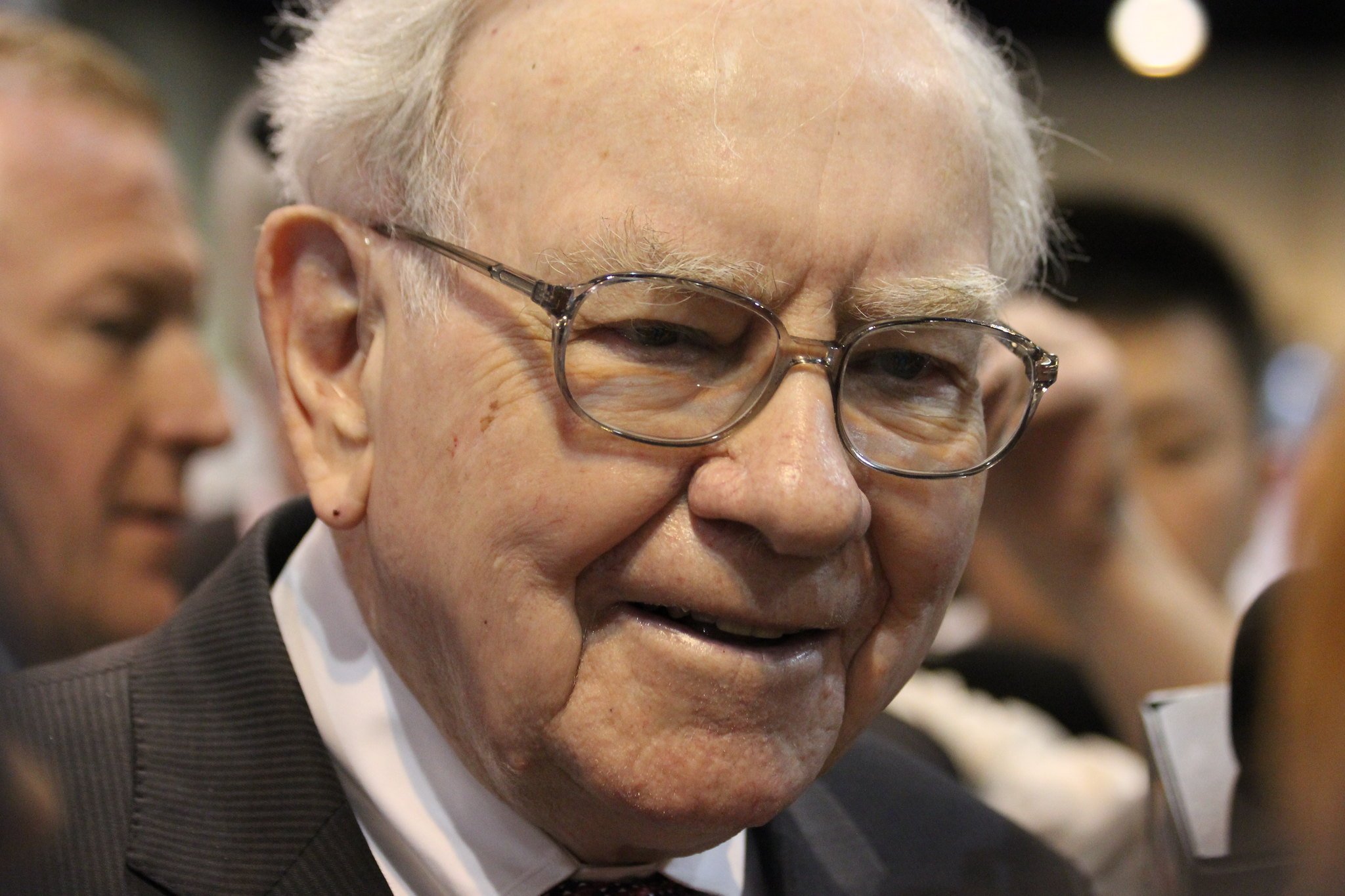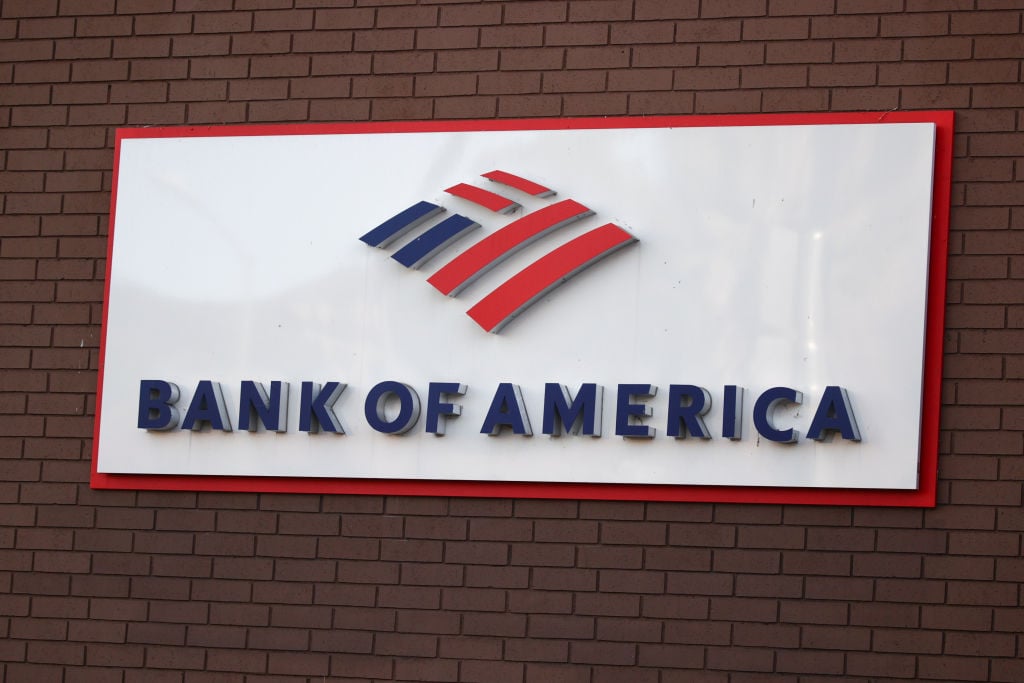
Warren Buffett's annual letters to the shareholders of Berkshire Hathaway (NYSE: BRK-A) are the single best road map for success in the stock market that have ever been written. But it's important to appreciate that Buffett's personal road to success has included some detours that aren't suitable for the average investor.
The origins of Buffett's philosophy
Generally speaking, Buffett's core philosophy is to buy great companies at reasonable prices. To use his words, "It's far better to buy a wonderful company at a fair price than a fair company at a wonderful price."
Take one glance at Berkshire's portfolio of common stocks, and it's clear Buffett means what he says. Among banks, for instance, he has common stock positions in the three best lenders in the country: Wells Fargo, US Bancorp, and M&T Bank. These companies are in no way mediocre. They are the best of the best, the cream of the crop.
However, Buffett doesn't always abide by his advice to only invest in top-shelf stocks. This isn't because he's intellectually inconsistent -- a flip-flopper, if you will -- but rather because he uses different strategies at different times.
By his own admission, Buffett's approach to investing has been influenced most heavily by three people, each of whom approach the discipline from a slightly different angle. Benjamin Graham stood for buying cheap stocks somewhat irrespective of quality. Philip Fisher believed in buying great companies somewhat irrespective of price. And Charlie Munger adopted the hybrid approach of buying wonderful companies at reasonable prices.
Buffett's decision to invest in a company could be grounded in any one of these philosophies, or in all of them combined. To complicate things further, he has also been known on occasion to enter into a variety of sophisticated transactions that only someone with his resources, knowledge, and expertise should contemplate.
Parsing Buffett's bet on Bank of America
I say all of this because it's easy to misconstrue the rationale behind Buffett's decision to invest in a specific company. Take Berkshire's position in Bank of America (BAC +0.72%) as an example. When Buffett wrote his latest letter to shareholders, the Charlotte, N.C.-based bank was Berkshire's fifth-largest equity investment. You'd be excused for interpreting that as a ringing endorsement.
But Buffett's decision to invest in Bank of America was not grounded in the philosophies of either Fisher or Munger, both of whom only condone investments in great companies. It was grounded instead in the philosophy of Graham, Buffett's original mentor -- who, it's worth recalling, emphasized price over quality.
I would argue that the evidence for this is irrefutable. In the first case, Bank of America has proven time and again over the last few decades that it is not an elite bank. It has a bloated expense base -- something Buffett despises. It overpays for acquisitions, some of which turned out to be complete disasters. And it's horrible at the core competency of banking -- namely, managing credit risk.
In the second case, the structure of Berkshire's investment in Bank of America hardly suggests that Buffett holds it in the same high regard as he does, say, Wells Fargo. Keep in mind that Buffett did not buy common stock in Bank of America; he bought preferred stock, which carries significantly less risk but also offers little upside. To make up for this, Buffett demanded that Bank of America gratuitously include warrants to purchase 700 million shares of common stock at $7.14 per share -- a total value of $5 billion -- at any time before the middle of 2021.
To the uninitiated, it might seem like I'm splitting hairs here. After all, $5 billion is $5 billion. What difference does it make that Berkshire's position consisted of $5 billion of preferred stock plus warrants, rather than a commensurate amount of common stock?
This is a rhetorical question, of course, because it matters a lot. Consider that Buffett will ultimately emerge with the same roughly 6.5% stake in Bank of America, regardless of how the deal was structured. But by structuring it in the manner that he did, the 84-year-old financier shifted all of the risk onto Bank of America's shareholders. If its shares failed to recover, then so be it; Berkshire would still get its 6% interest payment on its $5 billion preferred stake. But if the share price improved, as it indeed has, then Berkshire would exercise its warrants, make a fortune, and markedly dilute the bank's shareholders.
And in the third case, all you have to do is compare Buffett's effusiveness regarding his initial position in Wells Fargo to his much more restrained remarks about his sizable investment in Bank of America.
Here's Buffett in his 1990 shareholder letter talking about Wells Fargo:
With Wells Fargo, we think we have obtained the best managers in the business, Carl Reichardt and Paul Hazen. In many ways the combination of Carl and Paul reminds me of another -- Tom Murphy and Dan Burke at Capital Cities/ABC. First, each pair is stronger than the sum of its parts because each partner understands, trusts, and admires the other. Second, both managerial teams pay able people well, but abhor having a bigger head count than is needed. Third, both attack costs as vigorously when profits are at record levels as when they are under pressure. Finally, both stick with what they understand and let their abilities, not their egos, determine what they attempt.
And here's the extent of Buffett's substantive comments about Bank of America in his 2011 letter:
At Bank of America, some huge mistakes were made by prior management. [CEO] Brian Moynihan has made excellent progress in cleaning these up, though the completion of that process will take a number of years. Concurrently, he is nurturing a huge and attractive underlying business that will endure long after today's problems are forgotten.
If this were an awards presentation at a high school track meet, Bank of America would have earned a participation ribbon while Wells Fargo took home a 5-foot-tall, bedazzled trophy for first place. The point is that Buffett didn't invest in Bank of America because he thought it was a great company along the lines of Wells Fargo. He invested in it because it was weak and vulnerable and he could write the terms of the deal in such a way that, short of financial Armageddon, Berkshire simply could not lose.
If you follow in Buffett's wake, proceed with caution
The lesson here is that if you're going to follow Buffett into a stock, or if you're going to cite his investment in a specific company to confirm or counter your opinion of it, then it would be well worth your time to investigate why he likely bought it in the first place. If he was under the influence of Graham's philosophy, then you might not want to follow in his wake. But if Buffett was applying the philosophies of Fisher or Munger, then the company might indeed be worth a look.







